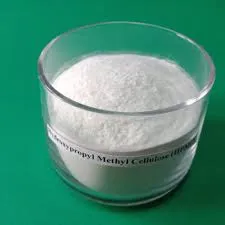
Dec . 05, 2024 06:35 Back to list
Exploring the Applications of Hydroxyethyl Cellulose in Various Industries and Products
The Use of Hydroxyethyl Cellulose Versatility and Applications
Hydroxyethyl cellulose (HEC) is a non-ionic, water-soluble polymer derived from cellulose, a natural polymer obtained from plant cell walls. Since its discovery, HEC has gained significant attention in various industries due to its unique properties, including thickening, emulsifying, and film-forming abilities. This article explores the versatility of hydroxyethyl cellulose, its applications across different fields, and the benefits it offers.
Properties of Hydroxyethyl Cellulose
HEC is known for its excellent solubility in cold and hot water, making it highly effective in numerous formulations. One of the key properties of HEC is its ability to modify the viscosity of solutions. This viscosity modification is especially important in industries like cosmetics, pharmaceuticals, and food, where the texture and flow of products play a crucial role in user experience and efficacy. Additionally, HEC is biodegradable and non-toxic, which makes it an environmentally friendly choice in various applications.
Applications in the Cosmetics Industry
In the cosmetics and personal care industry, HEC is widely used as a thickener and emulsifier. It enhances the texture and stability of creams, lotions, gels, and serums. Thanks to its film-forming properties, HEC provides a smooth, luxurious feel on the skin, improving the overall aesthetics of cosmetic formulations. Moreover, its ability to retain moisture makes it an excellent ingredient in skincare products, contributing to skin hydration and preventing transepidermal water loss.
HEC is also utilized in hair care products, where it helps to improve the viscosity of shampoos and conditioners while providing a smooth application. As a result, many manufacturers prefer HEC over other thickeners due to its superior performance and skin compatibility.
Pharmaceutical Applications
In the pharmaceutical sector, hydroxyethyl cellulose serves as a critical excipient in various dosage forms. It is commonly found in tablet formulations as a binder and film-coating agent, ensuring the uniform distribution of active ingredients and enhancing the mechanical strength of tablets. HEC is also used in ophthalmic preparations due to its excellent water retention ability, which can improve the viscosity and stability of eye drops and gels.
use of hydroxyethyl cellulose

Additionally, HEC plays a role in controlled-release formulations, where it can regulate the release of active ingredients over time. This feature is of great importance in developing innovative drug delivery systems that improve therapeutic outcomes.
Usage in the Food Industry
In the food industry, hydroxyethyl cellulose is employed as a thickening and stabilizing agent. It is commonly found in sauces, dressings, and dairy products, where it enhances the texture and mouthfeel of the product while preventing separation of ingredients. HEC is particularly valued for its ability to form stable emulsions and foams, which can improve the sensory characteristics of various food items.
Moreover, HEC’s high water-holding capacity can lead to better moisture retention in baked goods, improving texture and shelf life. As consumers increasingly seek clean-label products, the use of HEC as a natural thickener and stabilizer provides food manufacturers with a versatile option that meets customer expectations for ingredient transparency.
Construction and Industrial Uses
Outside the realms of cosmetics, pharmaceuticals, and food, hydroxyethyl cellulose has found applications in the construction industry, particularly in cement and tile adhesives. HEC enhances the workability of cement mixtures, allowing for better adhesion and reduced water usage. In addition, its water-retaining properties help maintain moisture during the curing process, which is crucial for achieving optimal strength and durability in construction materials.
Conclusion
Hydroxyethyl cellulose is a remarkable polymer with a wide array of applications across various industries. Its exceptional thickening, emulsifying, and film-forming properties make it an invaluable ingredient in cosmetics, pharmaceuticals, food production, and construction. As industries continue to innovate and seek sustainable solutions, the demand for environmentally friendly materials like HEC is likely to grow. As a biodegradable and non-toxic option, hydroxyethyl cellulose not only enhances product performance but also aligns with the increasing consumer preference for sustainable products. The versatility of HEC ensures that it will remain a crucial component in formulating effective and high-quality products for years to come.
-
Versatile Hpmc Uses in Different Industries
NewsJun.19,2025
-
Redispersible Powder's Role in Enhancing Durability of Construction Products
NewsJun.19,2025
-
Hydroxyethyl Cellulose Applications Driving Green Industrial Processes
NewsJun.19,2025
-
Exploring Different Redispersible Polymer Powder
NewsJun.19,2025
-
Choosing the Right Mortar Bonding Agent
NewsJun.19,2025
-
Applications and Significance of China Hpmc in Modern Industries
NewsJun.19,2025







